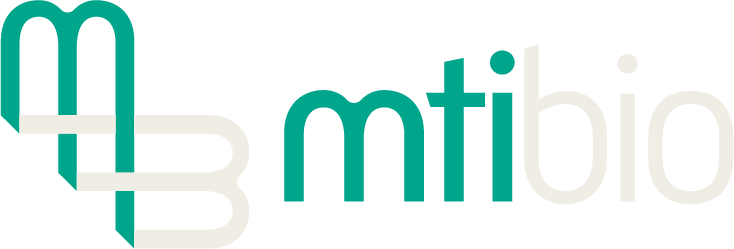Home > Protein Expression > E. coli Expression
Page Contents
1. Background and Advantages
2. Service Overview
3. Service Details
E. coli Expression Systems and Services
Background and Advantages
E. coli was the first system used to express recombinant proteins and today remains a favorite platform for protein expression. As a prokaryote, E. coli is particularly well-suited for expression of proteins from other bacteria but has been effectively used to express a great number of proteins from eukaryotes especially humans. The genetics, biochemistry and physiology of E. coli are better understood than any other microorganism. This, coupled with the ease of use and low cost, make E. coli a major expression system for recombinant proteins.
The advantages of using E. coli as a protein expression system include:
Fast growth: Fermentations can be completed in 1 to 2 days.
High yield: High-density cultures are achieved using readily available media components.
Easy to grow: Requires only simple equipment and protocols.
Easy to manipulate: All necessary materials to transform and express proteins are available commercially.
Scalability: What happens in 1 mL cultures is easily translated to large culture volumes.
Genetic manipulations start with cloning or synthesizing the gene of interest with codon optimization for E. coli expression. The optimized gene is then subcloned into an expression plasmid that is used to genetically program the cells via transformation. Transformed cells are selected by antibiotic resistance encoded by the expression plasmid and expression of the protein of interest induced chemically in exponentially growing cell cultures.
We offer a full range of custom E. coli expression and purification services. To get started on a project or for more information, please contact us.
E. coli Expression Service Overview
| Step | Description | Deliverable | Timeline |
|---|---|---|---|
| Gene Synthesis and Construct Assembly | Options: 1. Codon optimization for E. coli* then gene synthesis and subcloning into an E. coli expression vector. 2. You supply your expression plasmid. *E. coli, a prokaryote, has different codon preferences than humans and other eukaryotes. |
Sequence verified expression construct | 1-3 weeks |
| Generate strain of protein-expressing E. coli | Transformation (plasmid uptake) and selection for plasmid-bearing bacteria. |
Glycerol stock of protein-expressing E. coli | 3 days |
| Expression Testing | E. coli are grown in liquid culture under a series of varied growth conditions (media, temperature, inducer concentration). | Experimental report with images of SDS gels, blots, or pull-downs. | 1 week |
| Protein Production | Optimum protein expression conditions are reproduced in large-scale culture (from 1 to 100 liters). | Cell pellets | 3-4 days |
E. coli Protein Expression Service Details
Fast Growth
Doubling times for E. coli range from 30 to 50 minutes. Such rapid cell division is driven by high rates of protein synthesis, all of which can be redirected to synthesizing your protein. E. coli production times range from 3 to 20 hours. In comparison, insect and mammalian cells take longer than 24 hours to double with associated fermentation times ranging from 3 to 10 days.
High Yield
High density cultures are readily achievable using simple media and equipment. Most protein production runs ( up to 1 gram of purified product) can be completed in less than 20 liters of media in shake flasks. Additionally, the cells can be cultured in either liquid media or maintained on semi-solid media (e.g., agar plates).
Easy to Grow
E. coli cells can be grown on a wide range of media from basic carbon (glucose) and nitrogen (ammonia salts) sources to complex rich media such as Turbo broth. In most cases LB broth, consisting of 3 ingredients, is sufficient for robust protein production.
Easy to Manipulate
Engineering E. coli (via transformation) to express recombinant proteins takes less than 1 day. Expression plasmid DNA of sufficient purity for transformation can be obtained from a “plasmid miniprep” and protein expression strains, such as BL21(DE3), are commercially available from multiple sources. The ability to grow on semi-solid media (nutrient agar plates) allow isolation of genetically pure isolates as colonies on agar plates.
Scalability
Small cultures can readily be scaled to volumes ranging from 1L to 100L after optimum growth conditions are established.
Potential Shortcomings of E. coli Protein Production
Although E. coli provides a proven method for recombinant protein production it does have some potential shortcomings:
Misfolding of proteins: E. coli lacks many of the protein folding mechanism found in eukaryotic cells. As such, eukaryotic proteins may be misfolded resulting in poor expression.
E. coli cells have a highly reducing cytoplasmic environment that can cause problems with cyteine residues that normally form cystines (i.e. disulfides or sulfhydryl bridges). Incorrectly formed disulfides generally lead to poor expression.
E. coli has a rough time expressing large proteins especially from humans or other eukaryotes. Again, the problems arise from a lack of extensive protein folding machinery in the cells.
Protein misfolding in E. coli leads to the formation of insoluble inclusion bodies. Although inclusion bodies can be solubilized with denaturants, such a protein loses its native conformation and activity.
If these concerns may negatively affect your desired protein production project, please consider our baculovirus and mammalian cell offerings.
Please contact us for a quote or additional information or take a look at our other custom service offerings for your protein production, expression, and purification needs.
